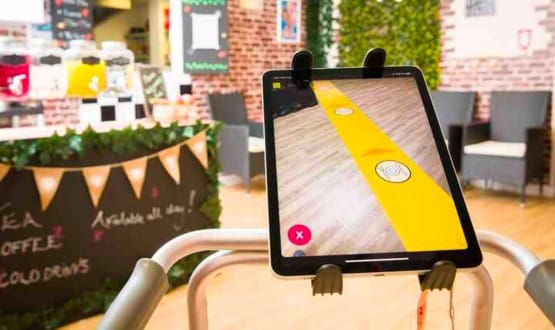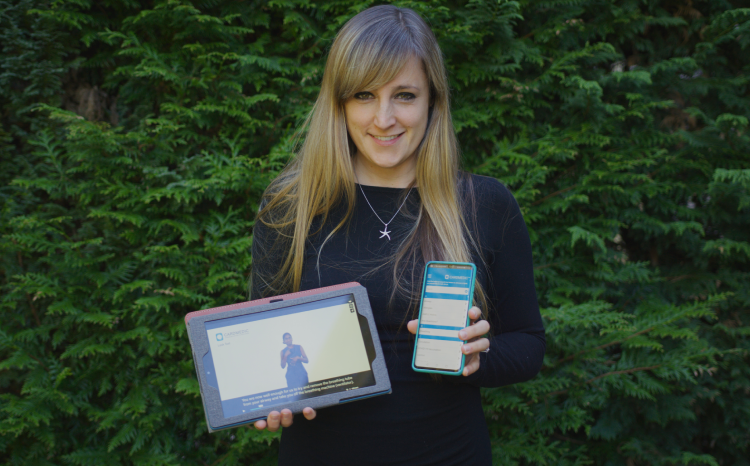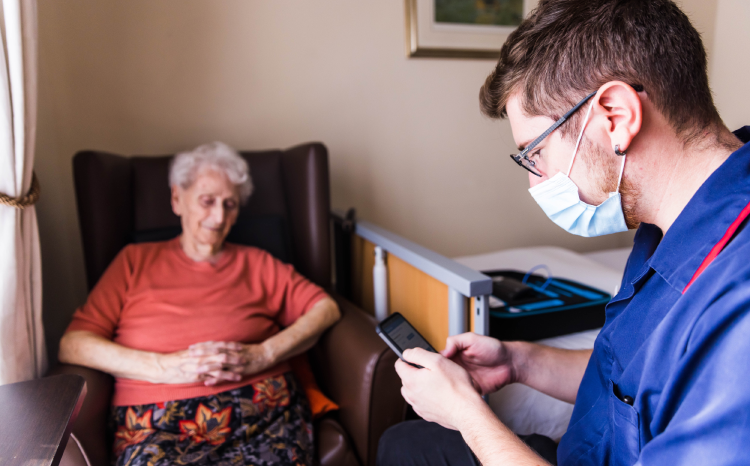Dorothy, Care City, TPXimpact awarded £80k fund for AR dementia tool
- 26 June 2023

Dorothy, Care City and TPXimpact have been awarded an £80k Discovery Award grant by Longitude Prize on Dementia, for their development of an augmented reality ‘yellow brick road’.
The prize will see digital transformation agency TPXimpact work with innovation centre Care City and memory app Dorothy. Together, they will develop an augmented reality platform that places the virtual ‘yellow brick road’ within community spaces – such as shops, parks and museums – to enable people living with dementia or memory loss to find their way around.
The wayfinding Dorothy app will be developed into The Dorothy Community, a platform that allows any organisation to offer indoor navigation, making them more accessible and dementia-friendly.
The Dorothy app has traditionally been used in care homes to help navigate and move around using augmented reality (AR). With the use of Artificial Intelligence (AI) it helps deliver reminders of daily tasks, all while keeping patients connected to their care givers.
Matt Skinner, CEO, Care City, said: “We are thrilled to have won an award to build on the Dorothy App prototype. Expanding the scope of this technology for use in a variety of environments will allow us to grow the Dorothy community and help more people living with dementia to regain some of their independence and confidence.”
The Longitude Prize on Dementia is funded by Alzheimer’s Society and Innovate UK and is delivered by Challenge Works. It aims to drive development of personalised, technology-based tools that are co-created with people living with the early stages of dementia.
Dorothy, Care City and TPXimpact were one of 24 semi-finalists to receive an £80k award. In 2024, five finalists will progress to build real-world prototypes with the help of an additional £1.5m in funding. A £1m first prize will be awarded in 2026.
In addition to seed funding and development grants, non-financial support will be funded to provide innovators with insight and expertise. This includes access to data, specialist facilities, collaborations with people living with dementia and expert advice.
Kate Lee, CEO, Alzheimer’s Society, said: “It’s vital people with dementia are able to live independently, doing things that bring them fulfilment, for as long as possible. And that’s exactly what tech innovation can provide.
“Today’s Discovery Award winners all have the capacity to develop cutting-edge tools that bring hope to the here and now, making a tangible difference to people’s lives. New drugs have been discovered which slow the progression of early Alzheimer’s disease, but there’s still more to do.”
Improving the lives of patients with Alzheimer’s and dementia was also a focus for Diana, Princess of Wales Hospital in Grimsby, who used donations from Cleethorpes Golf Club to purchase a Reminiscence Interactive Therapy Activities (RITA) machine to help patients recall events from their past.




